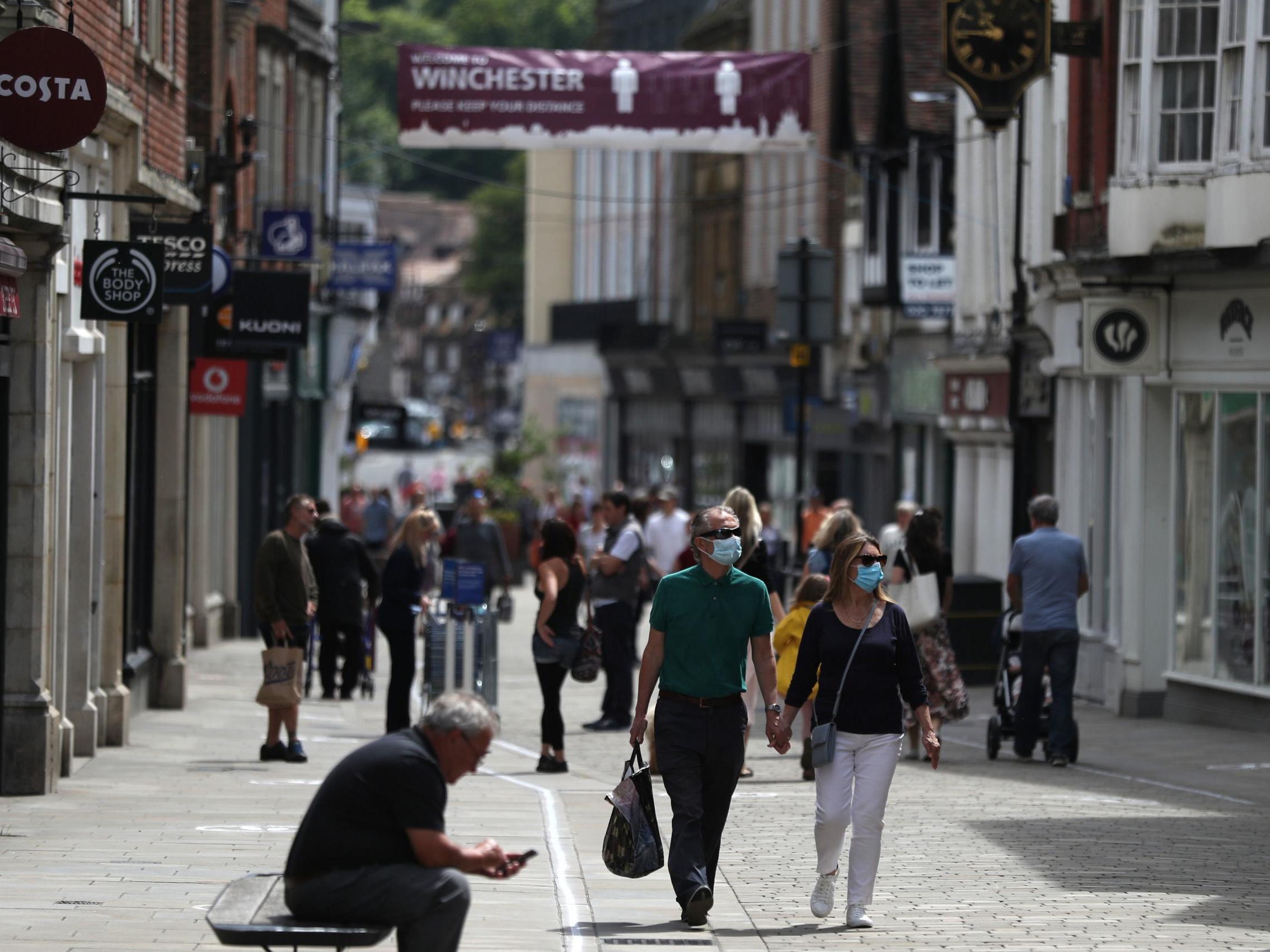Does it feel safe to go back to the high street?
Dallying on measures such as mandatory face masks means the government risks undermining its own advice, writes Ben Chapman


Britain will bounce back from coronavirus with a quick, v-shaped recovery, said Bank of England chief economist Andy Haldane just a couple of weeks ago.
He may yet be proved correct but he is now one of a small and dwindling band of optimists after the latest official numbers showed the green shoots of recovery barely began to show themselves in May, even as lockdown eased and construction and manufacturing workers started to go back to work.
The economy grew much slower than expected, just 1.8 per cent. Not nearly enough to take the edge off a colossal 25 per cent drop in March and April. True, there were some slightly more encouraging signs elsewhere. Despite social distancing and queues, many shoppers braved the high street in June, spending more than in the same month last year, according to figures from the big retailers.
There are a few reasons to suspect that this might not last.
We made less visits to high streets and retail parks but spent more when we did go. That may mean a lot of the extra spending was pent-up demand for purchases people wanted to make in the previous weeks but couldn’t as they were confined to their homes.
We will soon know whether underlying demand has actually strengthened. Many people are still staying away due to fears about their health and their future finances.
Which leads on to the government’s policies to lift the country out of what would a few months ago have been an unimaginable nadir.
Rishi Sunak’s mini-budget last week received a somewhat mixed response. To the extent that there was a consensus about the impact of measures like meal discounts, a VAT cut for hospitality and retention bonuses for companies that keep staff on, it was that the package is unlikely to be enough to prevent large-scale job losses.
Clearly the focus was on giving people incentives to get back out and spending money. Some revealing data from market research company Kantar points to why it may not work as the chancellor hopes.
After interviewing tens of thousands of people across 18 countries, Kantar found that fear about the virus remains high.
Only one in four respondents said they expect to go back to normal consumer activity as soon as restrictions are lifted.
It also identified a number of distinct groups of people from the “ostriches” who don’t see what the fuss is about to “precarious worriers” who are scared and wish the government would do more to protect them.
This is where the UK government has a problem. In opening up the pubs, telling people to go back into their workplaces and making it cheaper to eat out, it may well encourage the ostriches to spend.
But its mixed messages and confusing public health rules inspire little confidence in the considerable number of people who remain in fear of their lives or those of their loved ones.
In the latest example of what has become a pattern, Boris Johnson made face masks mandatory in shops. It should have helped to inspire the confidence that’s so badly needed, but instead the decision was marked by backtracking, contradictions and delay, undermining the central message.
The government’s failures and indecisiveness on dealing with Covid have not gone unnoticed around the world. YouGov found last week that just 5 per cent of French citizens and 6 per cent of Danes and Norwegians would consider a trip to the UK this year. Italians were the most likely to visit, but only 15 per cent said they would contemplate it.
That’s bad news for a country that relies on overseas tourism for billions of pounds in revenue each year, and it further exposes the fallacy that there is a trade-off between the economy and public health.
Unless people can be convinced that the latter is in safe hands, the V-shaped recovery risks turning into a dead cat bounce.
Join our commenting forum
Join thought-provoking conversations, follow other Independent readers and see their replies
Comments
Bookmark popover
Removed from bookmarks